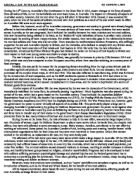The war’s impact in Australia, in terms of food, was generally its increase in price by 32% between 1914 and 1918, which was very low compared to other European countries, where there was also rationing, as a consequence of food shortages.
Initially, this was partly the reason for the prospering farmers benefiting from the high prices Britain paid for Australian agricultural produce – wheat, wool, sugar, dairy products and dried fruits. On one occasion, the British purchased all the surplus wheat crops, in 1915 and 1916. This was also reflected in manufacturing, which was furthered by the introduction of new companies, such as the BHP steelworks opened at Newcastle in 1915 and others in the chemical and electronic industries. This was the response to the government’s decision to ban economic exchanges of coal and mineral resources, which caused unemployment in those areas, and the nation’s deprivation of a source of finished goods from overseas.
Another aspect of Australian life that was impacted by the war was the demands of the Government, which immediately mobilised the home front, by primarily passing ‘regulations’. Much legislation was also passed during the period of the war, which had a great impact on the Australian society. These included the Australian Soldiers’ Repatriation Fund Act (1916), the Income Tax Assessment Act (1915), the Trading With the Enemy Act (1914-16), the Enemy Contracts Annulment Act (1915) and the Daylight Saving Act (1916). The War Precautions Act, however, gave the government the power to cover virtually all aspects of Australian life. This particularly played a large part in changing Australia’s typical society, by giving the Defence Department and government the power to act against what it saw as threats to Australia’s security, such as forbidding Germans to buy and sell property, restrict them from votes and force them to transfer any of their shares to the government under Enemy Shareholders Regulation (1916). Under protection from the law, many citizens of German and Austro-Hungarian descent were sent to internment camps.
During the war at the home front, the role of women to help in the war effort, was another large impact of the war. Hundreds of women urged the Defence Department to play a more active role at the battle front, but despite their efforts, they were only allowed to serve overseas as nurses. Many women, therefore, contributed to the war effort by working as volunteers. Some joined the Australian Comforts Fund, knitting socks and creating ‘comfort boxes’ while others joined organisations like the Red Cross and they were even restricted to these options. Only a few women worked in the workforce, as replacements for men, but they were lowly paid.
The aftermath of the war drew upon many more issues which made a large impact in Australia. Of the 330, 000 volunteers, which volunteered to fight in the war, 174, 000 were wounded and 60, 000 died. Almost every family and community had suffered losses of some kind, in a country like Australia, which had a relatively small population, just under five million. The returned soldiers caused domestic violence to increase, resulting in similar increases in divorce rates, and hostility between groups based on religion, ethical or moral beliefs. Programs had to be developed to deal with soldiers suffering permanent psychological damage and physical injuries and the Federal government has to concentrate on providing jobs for servicemen. There was a growing need for convalescent homes, cheap housing loans, vocational training and soldier settlement schemes.
However, many new products were developed, such as ‘Aspro’ painkillers and aeroplane engines, as well as the introduction of boards, such as the Wool and Wheat Board, for the benefit of returned soldiers.
All the impacts mentioned, above lasted for over 5 years during the war and afterwards, affecting people all over Australia, as image forever in their minds.







